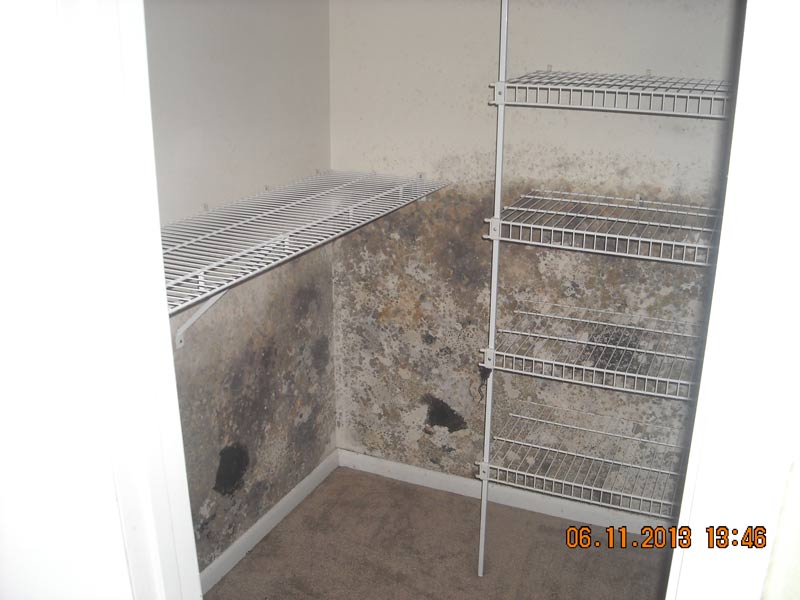Summer temperatures are here, and while it feels great to go outside again, our homes may be starting to feel the heat. As the weather gets warmer here in Indiana, moisture levels in the air tend to rise. When moisture is trapped in the home and cannot dissolve or dry, it facilitates the growth of mold, which can potentially go undetected for months or even years.
Mold is a serious issue and can cause a deal to fall apart if isn’t handled properly. Black mold is one of the most common types of mold in Indiana, and it can cause lung and breathing issues almost immediately. This is especially dangerous for young children, the elderly, and those with compromised immune systems, such as someone undergoing chemotherapy. Some studies have linked mold to the development of asthma in children, and other respiratory systems such as wheezing cough in both adults and children.
The mold you see in your home may just be the tip of the iceberg. Mold tends to grow in dark, damp places such as behind walls, under floorboards, and in crawlspaces. Moisture seeps into the home through cracks in windows, the roof, or the foundation. If the ground around the home is not sloped away from the house, or if gutters are installed improperly, moisture can get into the basement and facilitate mold growth.
Mold feeds off many building materials as they contain nutrients that the mold needs to grow. Any part of a home with wet cellulose materials, wood, wood products, ceiling tiles, drywall, carpet, or upholstery is more likely to support mold growth.
The best way to prevent mold in your home is to keep moisture levels down, especially during the warm summer months. Make sure areas of the home with high amounts of moisture, such as kitchens, bathrooms, and laundry rooms are properly vented to prevent buildup. Make sure that if there is any accidental flooding somewhere in the home, the area is thoroughly cleaned and dried. If you are concerned about how much moisture is in your home, you could consider installing a dehumidifier. Dehumidifiers are small appliances that pull water out of the air, and are commonly placed in basements, as they tend to harbor the most moisture. Making sure the basement is dry is extremely important for the structural safety of the home, and it can help prevent foundation issues.
If you discover small amounts of mold growing in your home, you can make a cleaning solution out of one cup laundry bleach to one gallon of water. Scrub away the visible mold, and then dry thoroughly. After the mold has been removed, you will need to address the excess moisture causing the mold. This may require fixing leaks or cracks in pipes, windows, walls, or the ceiling.
Large mold infestations can usually be seen or smelled readily, but sometimes an air test is necessary to make sure the home is mold-free. Cornerstone offers mold inspections and air samples to ensure your home is clean and safe. Click here for more information about our mold inspections.
Mold can pose a threat to your home and your health, if left untreated. The best way to prevent mold is to keep moisture levels in the home down, and to increase air circulation in the home. While mold is a serious issue, in most cases it can be easily removed, and doesn’t need to stop the sale of an otherwise healthy home.
Sources:
https://www.angieslist.com/articles/can-you-sell-house-mold-it.htm



